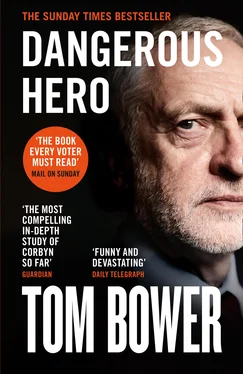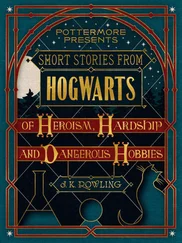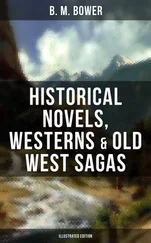For years, Keith and Val Veness and their claque had been trying to remove Michael O’Halloran, the Labour MP for Islington North. Despite being accused of corruption and incompetence, O’Halloran had allegedly been installed, then protected, by ‘the Murphia’, the local Irish mafia. O’Halloran accused the Venesses of bombarding him and his family with personal abuse in their attempts to hound him out. In the standoff, the Venesses had agreed with their group that if O’Halloran were removed, none of them would seek the nomination to replace him. The left therefore needed a candidate to counter any moderate applicants. Secrecy, they decided, was essential if they were to outwit their opponents. When Livingstone persisted in his attempts to secure Corbyn’s nomination to the GLC, he was told sharply by Val Veness, ‘Keep your hands off our candidate.’ He backed down, accepting Corbyn’s promise that he would work tirelessly to execute the coup at the GLC and also act as the agent for Kate Hoey, a member of the Marxist IMG, to win the Labour GLC nomination for Haringey.
During that frantic period of plotting, Corbyn paid little attention to Diane Abbott, who by then was working as a TV producer in London. ‘She was noisy, ambitious, lefty and overweight,’ was Jonathan Aitken’s impression during their encounters in the television world. In her excitable manner, Abbott fretted that Corbyn and Chapman were still meeting each other at Haringey council. Chapman recalled a ‘nervous, tense and slightly hostile’ Abbott knocking on her door one evening, and when Chapman answered making her demands clear.
‘Get the hell out of here,’ said Abbott. ‘You’re in the media and everywhere and I want you out of town.’
‘I can’t,’ replied Chapman. ‘I’ve been elected to office.’
Abbott was clearly disgruntled.
Later, Chapman explained, ‘She wanted a clear run. I was in the media a lot then because of my political work and she wished I wasn’t.’ Abbott was also fed up with Corbyn’s way of life; just as he had ignored Chapman, he was now ignoring her. Although she had enjoyed many relationships, none had led to as intense a friendship as she now had with Corbyn, but that too was failing. At twenty-seven, she wanted marriage and eventually children. Corbyn wanted neither.
One morning, Bernie Grant called Keith Veness. ‘Diane’s had enough of Jeremy. She’s moving out. Come and give us a hand.’ Veness arrived at Lausanne Road in a large van. The flat was strewn with papers and clothing. ‘It’s hard to have a relationship with someone who doesn’t come home for two weeks,’ said Abbott defensively. She, Grant, and Veness set about packing away her things. Suddenly the door opened, and in walked Corbyn. ‘Hello, mate,’ he said to Grant. Then he saw Veness carrying out Abbott’s possessions. After hearing why the two men were there, he walked away without comment; he was off to a meeting, he said. Appalled by the way Abbott, a fellow child of the Caribbean, had been treated, Grant chased after Corbyn. ‘Get real,’ he said, knowing full well that Corbyn remained insult-proof, and would certainly feel no guilt. Later Corbyn would recall, ‘Diane always says to me, “You learned everything you know in Shropshire, and unfortunately you’ve forgotten none of it.”’
In his political life at least, Corbyn was feeling empowered. Inflation was still rising, and Tory cuts were causing high unemployment and widespread distress. Daily, he would rush off to join picketing strikers or anti-government marches through another city centre against cuts and apparent Tory heartlessness towards the sick and unemployed. In March 1980, convinced that Labour’s 1979 election defeat could be reversed by direct action, Corbyn and twelve other left-wing Haringey councillors urged Robin Young not to bow to government pressure to limit rises in the rates in order to control inflation, then running at 14 per cent. Young refused to act illegally, and set a 36 per cent increase, a phenomenal hike, but insufficient for Corbyn, who wanted nearer 50 per cent, and refused to support the Labour council. Young had no illusions about the forthcoming encounter: ‘Corbyn built his own Berlin Wall and stood on the other side. He introduced hatred and divisions between us. He got it so that the left would not speak to the right, and after that battle we barely spoke. He hated anyone who didn’t subscribe to his view. He wanted them out.’ In the vote over the rates increase, Corbyn led his group of thirteen fellow-travellers to side with the Tories. The Labour moderates won – just. ‘They were pretty horrible people,’ recalled Young, but he did not dare discipline his rival. Two months later the group made a renewed attempt to oust Young, and again failed.
By then Corbyn’s relationship with Tony Benn had become unusually close. ‘Benn would come to love Corbyn as his son,’ reckoned George Galloway, a twenty-six-year-old Dundee-born Marxist and a rising star in the Scottish Labour Party. Corbyn was devoting much of his time to supporting the ambitions of Benn, who embodied the aspiration of many idealistic young socialists, for the party leadership. For Benn, corporate capitalism was incompatible with democracy, and formed the main threat to civilised life, a philosophy embraced by Corbyn. At Labour’s Blackpool conference in September 1980, Benn won a vote in favour of unilateral disarmament and cowed Jim Callaghan into allowing the mandatory reselection of MPs, a critical part of the strategy of ‘democratising’ the party. The left was gaining power.
Popular discontent about early Thatcherism created fevered excitement among Corbyn’s associates, who believed that the government was heading towards a cliff edge, with the cabinet divided over her abandonment of the post-war consensus. Losing public support, and even her customary self-confidence, Thatcher was expected by the left to capitulate to their demands. Instead, she turned defiant. At the Tory party conference she scolded: ‘To those waiting with bated breath for that favourite media catchphrase, the U-turn, I have only one thing to say: You turn if you want to. The lady’s not for turning.’ That phrase had been written for her by Ronald Millar, her speechwriter and a well-known playwright.
Five days later, on 15 October, Callaghan resigned as Labour leader, hoping that Denis Healey would be elected as his successor. If Tony Benn were chosen, Callaghan feared, Labour would be transformed into a genuinely revolutionary and unelectable party. There were three candidates: Benn, Healey, and that veteran of the democratic left, Michael Foot. Convinced that enough moderates had been expelled in the constituencies, Corbyn assured Benn that he would win, but Benn decided not to divide the left’s vote, and withdrew. As a result, Foot, who distrusted Benn as a disloyal, divisive and opportunist upstart, became leader. Healey’s defeat plunged the party into turmoil after Bennites won a majority on Labour’s National Executive Council (NEC). Led by European Commission president Roy Jenkins, a sophisticated former home secretary and chancellor, the moderates openly debated whether to quit Labour and set up a new political party. But for Corbyn and the left, Michael Foot was equally unacceptable, as a ‘prisoner of the right’.
The growing likelihood of Benn challenging Foot encouraged Tariq Ali, a member of the IMG and the author of, among other publications, Trotsky for Beginners , to abandon Trotskyism (in public at least) and, with Corbyn’s encouragement, apply to join his local Hornsey Labour Party. In practical terms, it made sense for Ali to jump aboard the Benn bandwagon and try to take over Labour from within. Although he condemned Benn’s politics as ‘bourgeois’, he could see how popular he was among voters. In Hornsey, Corbyn’s alignment with a well-known Trotskyite angered the moderates. What he called a ‘rainbow coalition’ was, in their opinion, outrightly subversive of the Labour Party. Even Toby Harris, a Corbyn ally and a leading member of the local branch, objected to Ali’s membership. Within weeks, Corbyn manoeuvred for Harris to be voted off the General Management Committee. Max Morris, a former communist and the chairman of the ward Ali joined, denounced Corbyn as Ali’s puppet. He too was threatened with expulsion by having his ward packed with new members, all Trotskyists. In response, a local party executive publicly condemned Corbyn for ‘the most extraordinary manipulation of the rules’.
Читать дальше










